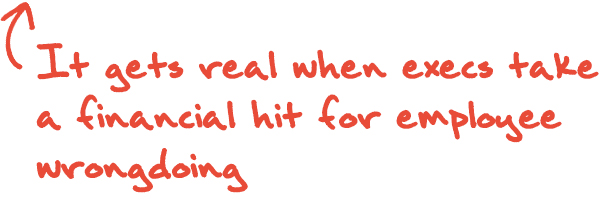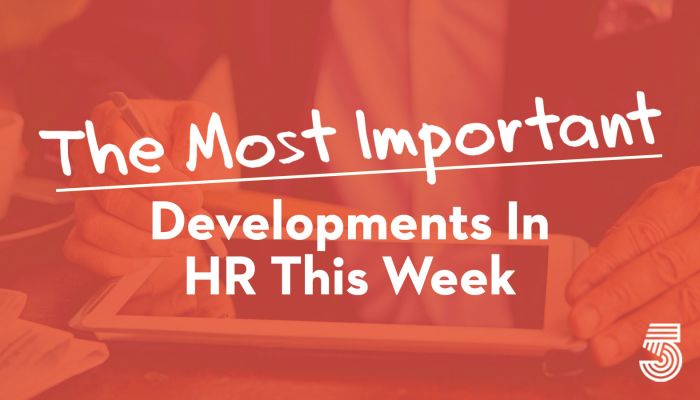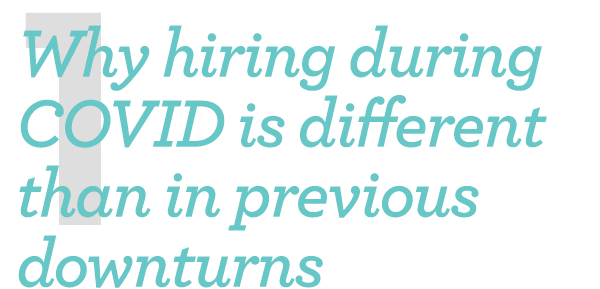
In the past, the intensity of competition for talent followed the ups and downs of the economic cycle. It’s therefore unsurprising — given the COVID-19 downturn — to hear that a number of thought leaders are concluding that we are back to an employer’s market. But a closer look at the data indicates that the situation is more complex. Assuming that we are in an employer’s market could lead companies to miss out on talent they desperately need to boost their revenues — and help revive the economy. During a hot labor market, characterized as a candidate’s market, they raise wages, hire fancy baristas for their offices and shower candidates with gifts ranging from Moleskine notebooks to Swell water bottles. If it is an employer’s market, they slash benefits and wages, try to drive a hard bargain, or turn their attention elsewhere if candidates balk at their strong-arm tactics. But several factors indicate that this downturn is different. And there are warning signs that hiring managers dusting off 2008’s hiring playbook may destroy considerable value for their firms. Harvard Business Review

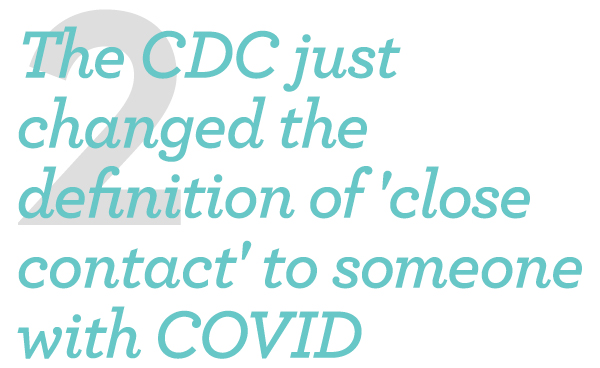
The Centers for Disease Control and Prevention on Wednesday expanded the definition of “close contact” to someone with a confirmed case of COVID-19 from 15 consecutive minutes within six feet to 15 total minutes or more, within six feet, over a 24-hour period. The revised definition is based on new evidence about transmission of the virus from a correctional facility in Vermont. A 20-year-old prison employee contracted the coronavirus during the course of his eight-hour shift during which he had multiple, albeit brief, encounters with six asymptomatic incarcerated individuals on July 28. The employee, who was wearing a cloth mask, a gown and eye protection during each interaction, spent a total of 17 minutes with the incarcerated individuals during his shift. They wore face masks during some, but not all, of their interactions with the employee. Forbes

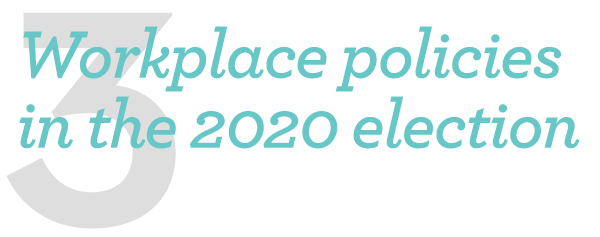
On Tuesday, November 3, Americans have the opportunity to vote in the 2020 election. These elections will shape the future of workplace policy. It is critical that HR leaders are informed of the issues and positions across a range of workplace topics. Just a few: Biden supports a bill known as the Protecting the Right to Organize (PRO) Act that would significantly change labor relations law, making it more difficult to classify workers as independent contractors and expanding the definition of “joint employer.” Trump has promised to veto the PRO Act if it reaches his desk. During Trump’s presidency, the National Labor Relations Board has consistently delivered employer-friendly rulings on a number of issues, noted Dan Altchek, an attorney with Saul Ewing Arnstein & Lehr in Baltimore. Trump opposes the Affordable Care Act (ACA) and a public option, but he supports health reimbursement arrangements (HRAs) for businesses to have an alternate way to offer health insurance. He promises to do more to create a competitive market for health care service by continuing regulatory efforts to require hospitals and health care providers to be transparent about pricing. Biden favors maintaining and expanding coverage under the ACA. He also supports lowering the age to enroll in Medicare to 60 from 64. HRPS

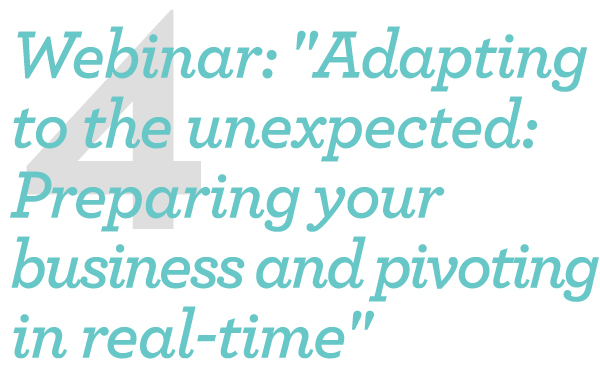
When the pandemic hit and the world went into lockdown, businesses had to act fast and pivot to keep the lights on. What do you do if your business relies on thousands of people gathering together to run, climb, and push their bodies to their physical limits within inches of one another? That’s the situation that Joe De Sena and his company Spartan Race faced and continues to face during these unprecedented times. But rather than call it quits in the face of a seemingly impossible situation, Joe and his team went to work to find solutions to keep customers engaged, revenue coming in, and the company alive. In this lively, no-holds-barred discussion with the fearless CEO, learn what it takes to pivot in real-time and make fast decisions that can mean the difference between standing strong or shutting down. Key takeaways: Critical cash-saving strategies, being productive during forced downtime, keeping your staff motivated and engaged. Nov. 23, Noon EST. Entrepreneur

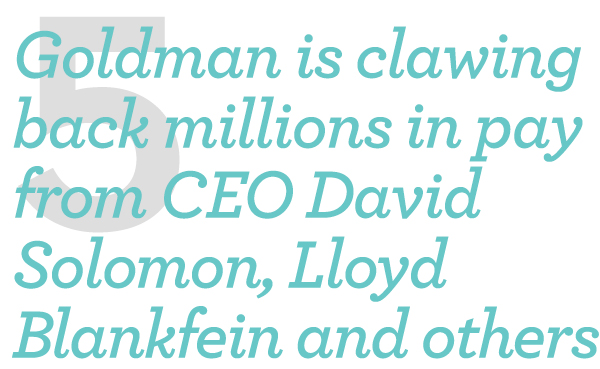
Goldman Sachs is moving to claw back tens of millions of dollars in compensation it’s paid executives including CEO David Solomon and former CEO Lloyd Blankfein over the 1MDB international scandal. The company is expected to announce a broad settlement with U.S. authorities over its role in the 1MDB debacle, in which a $6.5 billion Malaysian investment fund was looted with the help of some of the bank’s employees. The clawbacks include current and former employees, according to a person with knowledge of the situation. The move was reported earlier by the Wall Street Journal, which said that the bank would also cut pay for current executives. The punishment meted out by the board of the New York-based bank may be viewed as an indirect acknowledgement that Goldman’s leaders had some responsibility for the episode. Top executives were on committees that reviewed the deals, several outlets including CNBC have previously reported. CNBC
